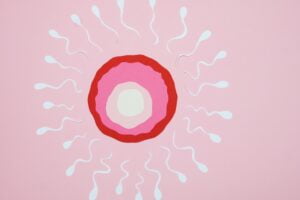When it comes to fertility, your BMI and weight matters. Obesity is one of the leading causes of preventable infertility in women. 1 (It’s unclear how much weight affects male fertility.) According to the American Society of Reproductive Medicine (ASRM), more than 70% of women with weight-related infertility could get pregnant without fertility treatments if they lose weight.
At the same time, it’s critical to understand that hormonal imbalances and a variety of other factors can contribute to weight gain. It’s not just a matter of eating healthier and exercising more. Furthermore, being underweight can lead to infertility. The situation is more complex than that. What effect does weight have on fertility? Is your weight normal for your height? What are you going to do about it?

Being Overweight
Researchers looked at the relationship between women’s body size and how long it took them to get pregnant in a study published in the journal Human Reproduction. The authors studied approximately 1,650 women. Women with a BMI of 25 to 29 had a 17 percent longer delay in getting pregnant than those with a BMI of 20 to 24 (roughly the normal-weight range). Those who were obese with a BMI of 30 to 34 had a 25% longer delay, and those who were extremely obese with a BMI of 35 or higher had a 39% longer delay.
Meanwhile, underweight women with a BMI of less than 18.5 had an 18% longer delay in getting pregnant if they’d never been pregnant before; underweight women who had previously given birth had no trouble getting pregnant again.

Does a Man’s BMI Influence His Chances of Having a Child?
Possibly. According to a study published in Human Reproduction in February 2014, men who are overweight or obese are more likely to have lower sperm volume and total sperm count than men who are in the normal weight range. Furthermore, a study published in the Journal of Assisted Reproduction and Genetics in February 2020 discovered that obesity alters the protein in sperm in ways that may lead to poor sperm function and infertility. Each of these conditions can jeopardise a couple’s ability to have a child.

BMI and Fertility Treatments.
Dr. Hodes-Wertz adds that being overweight or obese can impair your response to fertility treatments, particularly medication that induces ovulation. According to a study published in the journal Reproductive Biomedicine Online, obese women have a lower success rate with in vitro fertilisation (IVF).
Researchers reviewed 49 studies that investigated the relationship between women’s body weight and their success with assisted reproductive technology in a study published in the journal Reproductive Health in February 2018. (ART).
Overweight and obese women had a 19% lower live birth rate after ART than normal-weight women; obese women also had a 52% higher miscarriage rate after ART.
Good News about BMI and Fertility
Losing excess weight often improves fertility in overweight or obese women — and you don’t have to reach an ideal weight to do so (or a BMI under 25). “In obese women, losing 5 to 10% of their weight can make a significant difference in their ability to conceive by improving ovulation and egg quality,” Hodes-Wertz explains. “It’s easier for them to get pregnant, and they often have a better overall pregnancy experience,” with fewer complications during pregnancy, such as high blood pressure or diabetes.
According to a study published in the journal Andrologia in February 2018, when obese men lose weight, their sperm DNA fragmentation improves significantly, as does their percentage of normally shaped sperm. This is significant because both sperm abnormalities contribute to infertility.
A healthy body weight may help with ovulation and conception processes.
So, when it comes to having a baby, it’s worth making an effort to work with your healthcare team to achieve or maintain a healthy weight by eating a nutritious, balanced diet with fewer calories and exercising on a regular basis. (The same is true if you do conceive, obtaining your healthcare team’s approval for any dietary changes is critical for your and your baby’s health.)

In terms of getting pregnant, even if conceiving naturally isn’t possible after losing weight, losing weight can improve your chances of having a successful IVF pregnancy.
If you are underweight, gaining weight may help restore normal ovulation; if it does not, you may be a candidate for ovulation induction agents (to increase follicle stimulating hormone production) or progesterone supplementation.
To know about infertility and its causes read this article on “Infertility and what are it’s causes?“



